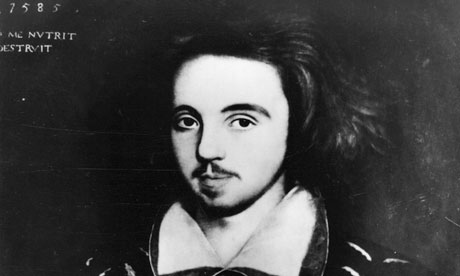
One of the secret pleasures of reading is watching books and writers talk to each other through webs of allusion, reference and sly literary homage. It's a conversation that can come in many forms.
At the low end, this dialogue can descend into plagiarism. At the high end, it becomes – I'm talking about fiction here – part of the novel's texture.
There's a very good piece in the current New York Review of Books in which Colm Tóibín evaluates 2011 Booker prizewinner, The Sense of an Ending by Julian Barnes.
In the process, Tóibín uncovers the writer tipping his hat not only to Ford Madox Ford's The Good Soldier (that was always fairly obvious) but also (more arrestingly) to Barnes's friend, the late Philip Larkin.
Tóibín is completely persuasive about Larkin's influence on this short novel. His review makes me want to re-read, for pleasure, a book I've read twice already in the line of duty.
From Julian Barnes to EL James is a vertiginous, and hazardous, bungee jump. However, Fifty Shades of Grey would be inexplicable without the influence of Stephenie Meyer's mega-selling Twilight series. Ms James is a fairly dreadful, nakedly commercial, writer whom I predict will be forgotten as swiftly as she has been discovered. Her soft porn exploitation of Twilight's fantasy landscape and characters gave her a jump start with thousands of readers. Hers is a different kind of literary dialogue, with a different kind of outcome. Last week, Fifty Shades occupied the No 1, 2 and 3 slot on the Sunday Times bestseller list. Nice work if you can get it.
But back to the high end. In the UK, later this month, Hachette will publish The Marlowe Papers, a novel in verse by the poet Ros Barber. Here the web of allusion becomes a cat's cradle of unreliable narration, literary homage and bare-faced speculation (even fabrication).
In simple terms, this poetic thriller, which I have just started to read, takes the violent death, on 30 May 1593, of the poet and playwright (and sometime spy) Christopher Marlowe and gives the reader "the truth" about the famous "reckoning" in Deptford.
There's nothing new here, of course. Ros Barber is merrily conducting a clever mash-up (in verse) of many centuries' conspiracy theories. The poet Blake Morrison is quoted in support of this "tour de force". He is not alone. My edition (an attractive hardback) also advertises praise from Hilary Mantel and Benjamin Zephaniah. Morrison says that the novel "allows the dead to speak".
And so they do. To each other; to past, present and future; and to any contemporary readers with an interest in Elizabethan literature. Because – of course – it is the lonely exile, Marlowe, living across the Channel who continues to write poetry and plays, hiding behind the name of a colourless merchant from Stratford – a certain William Shakespeare.
The thing about the English literary conversation is that, finally, it always comes back to our national poet. In the year of the Cultural Olympiad, and the Globe to Globe productions of the Shakespeare canon down in Southwark, The Marlowe Papers at least has good timing on its side.

